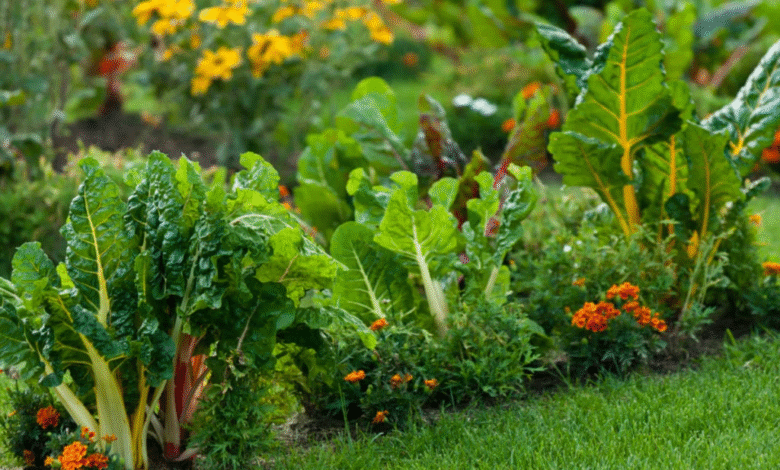Steps To Keep Your Garden Thriving Year-Round

Key Takeaways
- Routine garden maintenance promotes healthier and more resilient plants.
- Strategic seasonal care ensures continuous growth and reduces long-term issues.
- Eco-friendly gardening practices benefit both the environment and your outdoor space.
- Smart planning helps prevent common gardening pitfalls that lead to plant stress.
- Practical tips from horticulture experts can provide valuable insights for gardeners of all levels.
Why Garden Maintenance Matters All Year
Maintaining a vibrant garden throughout the year requires consistent attention and care. Frequent upkeep, even outside the growing season, helps your plants build resilience and health. By establishing a routine, you’re not just maintaining appearances—you’re supporting the entire ecosystem within your garden. Tasks as simple as regular watering, pruning, and debris removal can dramatically reduce the likelihood of disease and pest infestations before they start.
Furthermore, structured garden maintenance in Frederick County, VA isn’t just about aesthetics; it’s crucial for preventing issues such as root rot, invasive weeds, and plant stress. Regularly examined gardens are quicker to recover from environmental shifts and require fewer costly interventions in the long run. Those who invest in consistent care reap the benefits of blooming flowers, healthy produce, and a vibrant landscape, regardless of the season.
Key Tasks for Each Season
Spring
Spring signifies new growth. Start by cleaning up winter debris, amending beds with compost, and pruning back damaged branches. Begin sowing annuals and vegetable seeds after the last frost, and stay vigilant for pests that may take advantage of the new shoots. Regular weeding during these months will save countless hours later and give your plantings a head start.
Summer
During the summer, your focus should shift to watering, deadheading blooms, and mulching to conserve moisture. Extended daylight promotes rapid growth, but also brings heat stress and pests. Make it a habit to water early in the morning and inspect leaves for signs of intrusion.
Autumn
As temperatures drop, autumn maintenance is all about preparing for the onset of dormancy. Remove spent plants, rake leaves, and clean up diseased foliage to decrease pest and disease carryover. Plant spring-blooming bulbs and cover sensitive perennials with mulch to insulate roots. This careful preparation supports healthier growth once spring arrives again.
Winter
Winter doesn’t mean ignoring the garden. While most plants rest, inspect your hardscape for damage, remove any fallen branches, and replenish the mulch. Protect tender shrubs with burlap wraps and store tools adequately to extend their lifespan. Occasional checks prevent animals from nesting where they shouldn’t and keep your garden ready for spring’s return.
Managing Common Garden Challenges
Pest Detection and Prevention
A thriving garden can quickly become stressed by pests and diseases. Early identification of issues, such as chewed leaves or powdery mildew, enables prompt action. Encourage beneficial insects such as ladybugs and lacewings, which naturally keep pest populations in check. Physical barriers and organic pest controls, like neem oil, are preferred for maintaining ecological balance.
Dealing With Weather Extremes
Weather unpredictability—such as drought or heavy rains—can easily damage plants. Focus on proper drainage, raised beds, and mulching to help stabilize soil moisture. During drought, prioritize watering deeply instead of often. If your garden experiences excess rainfall, ensure runoff channels are cleared to prevent standing water and root damage.
Regular Inspection Benefits
Setting aside time each week for a visual check can catch most problems early. Look for signs of wilting, discoloration, or insect activity, and address these issues immediately. By fixing minor problems before they escalate, you maintain a healthier garden with minimal intervention.
Eco-Friendly Maintenance Choices
Modern gardening prioritizes sustainability. Opt for hand tools over gas-powered ones whenever possible, and select organic fertilizers to minimize chemical runoff. Composting kitchen and yard waste not only diverts material from landfills but also provides nutrient-rich amendments that enhance your soil’s structure and fertility. Mulching beds with organic material retains moisture, suppresses weeds, and gradually improves soil health. You can also reduce water use by choosing native plants or installing drip irrigation, ensuring your landscape stays gorgeous without the need for constant watering. These eco-friendly decisions benefit both your garden and the broader environment.
Professional vs. DIY Garden Care
For some, the joy of hands-on gardening is a favorite pastime, but time constraints or unexpected challenges can make professional services a practical choice. DIY garden care often saves money and allows for a personal touch, but may require a learning curve and time commitment. In contrast, hiring professionals ensures regularity, expertise, and solutions to complex problems—especially during periods of peak growth.
If you’re dealing with persistent pests, intricate landscape designs, or limited availability, seeking expert help can resolve issues before they become overwhelming. Routine professional care is often the best option when high-quality, low-maintenance gardens are the goal.
Designing a Maintenance Calendar That Fits Your Life
With busy schedules, it’s easy to miss critical gardening tasks—a personalized calendar—whether a simple paper planner or a digital app—can help. Break tasks into weekly, monthly, and seasonal chunks to keep work manageable and prevent overwhelm. Reminders for fertilizing, pruning, or inspections are particularly beneficial during times of rapid garden growth and change.
A range of gardening apps now provide localized care tips and push notifications. These can help you stick to routines and adapt quickly to weather or schedule changes, maximizing your garden’s health with minimal effort.
Smart Tools and Modern Equipment for Easy Upkeep
Innovative gardening tools make landscape maintenance more efficient and enjoyable. Battery-powered lawn equipment, ergonomic hand tools, and automated watering systems are increasingly affordable and accessible. Robotic mowers and soil monitors allow you to spend less time on routine chores and more time enjoying your garden.
Simple investments—a quality pruner, lightweight hoses, or knee-saving pads—add up to a significant difference for comfort and efficiency.
Conclusion
Maintaining a healthy and beautiful garden year-round requires consistent care, seasonal awareness, and thoughtful planning. By understanding what each season requires, addressing pests and weather challenges early, and making eco-friendly choices, gardeners can foster thriving landscapes while supporting the environment. Whether you prefer hands-on DIY care or professional assistance, using a well-organized calendar and modern tools makes upkeep manageable and more enjoyable. Ultimately, thoughtful, regular maintenance ensures your garden remains vibrant, resilient, and a source of pride throughout the year.




